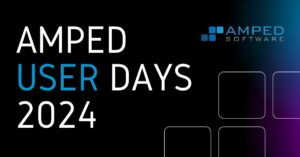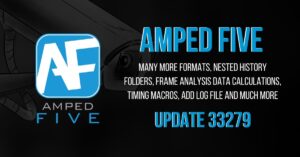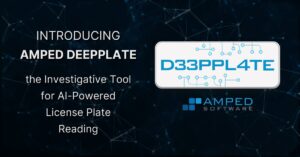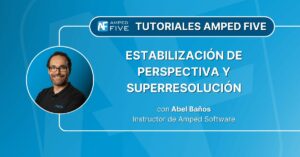When picking the right subscription, having a guide can really help meet your budget. Discover which subscription is right for you and learn more about the licenses and the differences between our common subscription options.
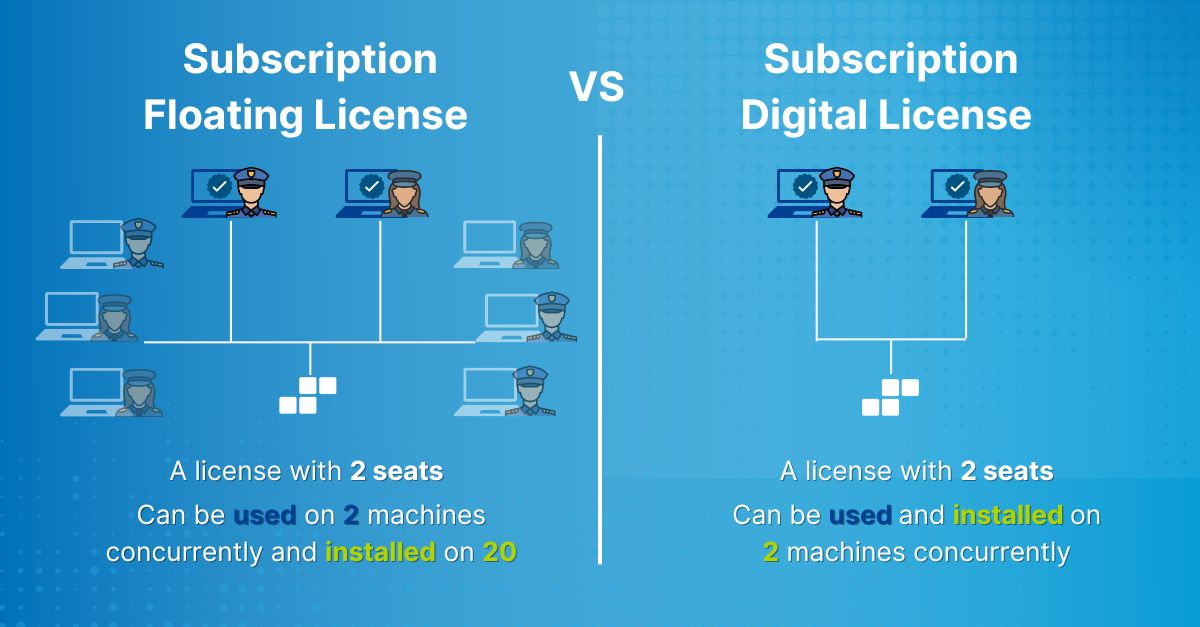
Hey Everyone! Back in September 2023, we announced that a new type of subscription was being added to our tools. Since then, we have been working hard to ensure that Amped Replay, DVRConv, FIVE, Authenticate, and even Amped Engine have options to help every agency and every budget. While we still have perpetual licenses available on request, in today’s post we aim to break down the licenses and the differences between our common subscription options.
Subscription Digital License
This is one of the most common licenses that agencies choose if they need an offline solution in the United States. A Subscription Digital License allows the user to install an application (for example, Amped Authenticate) on a computer. It lets everyone who uses that computer have access to that application. Amped Authenticate will then work for the entire year, whether the computer is connected to the internet or not. In my old lab, this allowed the whole unit to access Amped programs on one forensic computer.
This subscription digital license is a cost-effective option and great for an agency with a single person as their analyst. It ensures that evidence devices never have to touch the internet (and you can even activate the license offline). This is also great for larger units that assign a computer to each unit member, as they can then have that license installed on whatever device they use most.
Subscription Floating License
In 2023, we started offering a new floating license option, where you can “share” the license across multiple computers. This was new (to us) but likely something you are familiar with thanks to your favorite streaming service (looking at you, NetPrimeAmount+). This allows you to subscribe to a “seat” of an application (we will use Amped Replay in this example). Then you can install it on multiple machines simultaneously. When someone in the unit needs to convert or send out a still from a CCTV, they open Amped Replay. It checks to ensure the seat is open, allowing them to get right to work. When they are finished, as soon as the software is closed, it frees up the seat for someone else.
This option works great for investigators who do a lot of different tasks and don’t need constant access to, in this instance, Replay. An entire detective squad or Property Crimes can share a single subscription floating license of Amped Replay, only using it when they need to work with video evidence. Or you can install Amped FIVE, for example, on a laptop and a desktop and have access both at the scene and the lab. As the need for video processing increases, agencies can just add another “seat” and have multiple instances running at the same time.
The Difference Is in the Access
Amped Software now offers both options to new and existing users so they can choose the best one for their use case. The main difference is how the software checks the license. The Subscription Digital License is installed and activated on the machine. Again, this license can work for all users on that device, whether online or offline. The Subscription Floating License will work for all users across multiple computers. However, it needs an active internet connection to see if anyone else uses the software.
We’d love to help you find the best option for you and your organization. For more information, reach out today!

